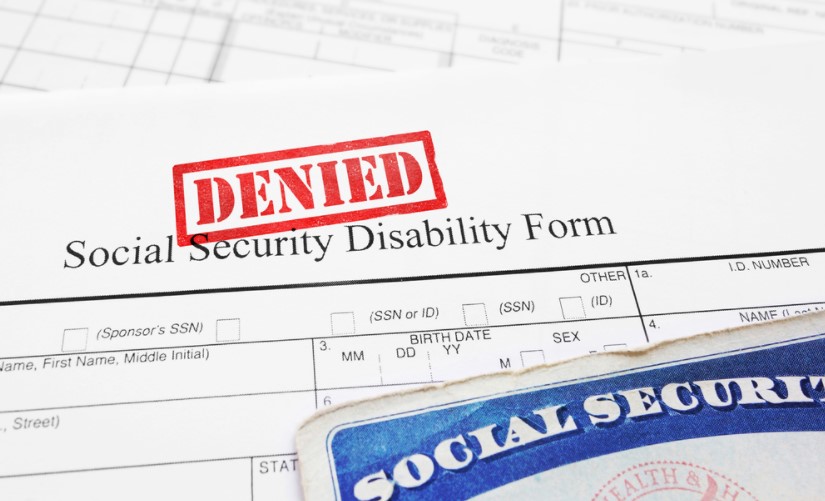No person is more important during the disability claims process than your doctor. Your doctors can help or hurt the application process. Your doctor’s support in your Social Security disability is not required but can be a big help.
But we must start with reality. Most doctors don’t want to get involved in disability insurance claims. You really can’t blame them. They are trained to treat patients and not fill out forms.
Support In Writing Is A Must
Your goal is to secure your doctor’s support in writing. The best form of support is a descriptive reporting of disabling impairments during office visits. However, your claim is further supported if your doctor is willing to fill out a Residual Functional Capacity (RFC) Assessment or a Medical Source Statement Of Ability To Work.
Physical Functional Capacity Assessment
Mental Functional Capacity Assessment
Physical Medical Source Statement
Mental Medical Source Statement
Acceptable Medical Source
The doctor you choose to provide your treatment has to be considered a licensed acceptable medical source by the Social Security Administration (SSA) standards.
Many applicants have been blindsided when they discover that the SSA does not recognize the treatment they have been receiving.
For example, treatment provided by a chiropractor, a therapist, or a naturopathic doctor is not recognized by Social Security as a medical source.
You may list these providers as a treatment source, but their contribution to your claim will be limited (Social Security has increased the disciplines they will accept as of March 27, 2017).
How Your Doctor Can Help You
How can doctors help you? By providing: 1) A diagnosis included in the “Listings,” 2) describe the medically determinable impairments that are causing you to be disabled. 3) how your impairment (s) cause you to be unable to participate in substantial gainful activity. If your doctor can’t do this, your claim is in trouble before you start.
Medical impairments that are not severe
How You Can Help Your Doctor
Be honest about your condition. Be prepared to answer questions for your doctor when you apply for disability. Be prepared to describe your symptoms, including chronic pain symptoms, in great detail. Describe how your disabling symptoms impact your ability to work; this is the key to winning your claim.
Be prepared to list your symptoms with conviction and knowledge. For example, “Doctor at work, I have difficulty sitting for more than thirty minutes or more without my back hurting. I cannot stand for thirty minutes without pain on my right side. I cannot lift more than 10 pounds etc.” (A copy of an RFC assessment describes the information the SSA needs to approve your claim).
Doctors’ Feelings About Disability
Doctors are not obligated to help you get your disability. Plus, some doctors do not believe in disability benefits, so they will not support your claim.
Besides, doctors believe in “first do no harm.” They want to heal patients. They do not want to admit defeat or seal their patient’s fate as they see it by assigning a lifetime of disability. Some Doctors believe that once a patient gets a disability, they will stop trying to get better.
This is why you need to ask your doctor specifically how they feel about you applying for disability. If they tell you to wait to file your claim, you need to follow their advice or convince them otherwise.
In some cases, your doctor may need to be courted to help you win your disability claim. Unfortunately, social Security and other disability insurance providers can cause a strain in your relationship with your doctor.
This can make applying for disability more difficult. For example, Social Security can require your doctor to participate in legal insurance documentation uncharacteristic and unwanted by many physicians.
Busy doctors already have too much paperwork; the last thing they want is additional forms to fill out or dictating letters of support. Instead, you can schedule a separate appointment to discuss your need for disability.
Medical Evidence Provided By Your Doctor
Your medical records need to prove that your current medical condition is severe enough that you cannot function or maintain “any” sustained work activity (substantial gainful activity). Your medical conditions must last at least a year or more or will be expected to result in death.
The average doctor spends five to ten minutes with a patient and doesn’t always document information provided by you as the patient verbatim. As a patient; this can cause unpleasant consequences.
You also don’t want a disconnect between you and your doctor by asking them to chart your clinic notes in a particular way. The last thing you want is a wedge between you and your doctor.
Your doctor needs to understand the following:
- Why are you applying for a disability?
- This may be difficult, but make sure your doctor is in the right mood and doesn’t appear rushed when discussing your need for disability benefits.
- If necessary, make a separate appointment with your doctor to discuss disability issues. Give your doctor control of when to discuss this matter.
- Discuss how your disabling symptoms impact your ability to function at work.
- If you can obtain a letter from your employer describing your limitations, give a copy to your doctor. Give this same letter to the SSA.
- Provide your doctor with a copy of the ‘listings” described by SSA. Your doctor can choose a listing that most closely meets your diagnosis. This also allows your doctor to know what type of documentation the SSA needs to approve your claim.
- Provide your doctor with a copy of a RFC form (mental or physical) completed by you. This can be very beneficial because your doctor will know exactly how your symptoms impact your ability to work. Provide your doctor with a blank copy and ask if they could complete the form on your behalf.
- Some doctors don’t like forms. Ask them if they would be willing to complete a medical source statement. It would not be unusual to offer to pay for their time. Both an RFC and a Medical source statement depending on the content, maybe highly beneficial to your claim.
Take Away
Start with the reality that doctors don’t want to be involved with disability applications. They are not bad people, but their job is to provide treatment and heal you, not fill out paperwork. Have a conversation with your doctor about your disability and how it impacts your ability to work.
Insurance providers often request that your doctor fill out forms that require their time. Doctors are busy and already have a lot of paperwork, thanks to the insurance industry. Doctors also may fear they will be needed to go to court.
A problem between you and your doctors can occur as a result. The insurance bureaucracy enters into the clinical relationship between you and your doctor.
The average doctor spends five to ten minutes with a patient and doesn’t always document the patient’s information verbatim. This can cause unpleasant consequences when applying for disability benefits.
Finally, your doctor has to be an active participant in your disability claim. If for any reason, they can’t do it or do not want to participate, you should consider finding another medical provider.
A patient and their doctor seldom discuss the need for disability. Although, it is often not addressed until after a denial has occurred. Most patients, if asked, don’t know if their doctor even supports the disability claim.
Before you file your claim you should know your doctor’s opinion on disability benefits. This information is significantly essential for you to know. You do not want to wait until you’ve filled your claim to know how your doctor feels.











